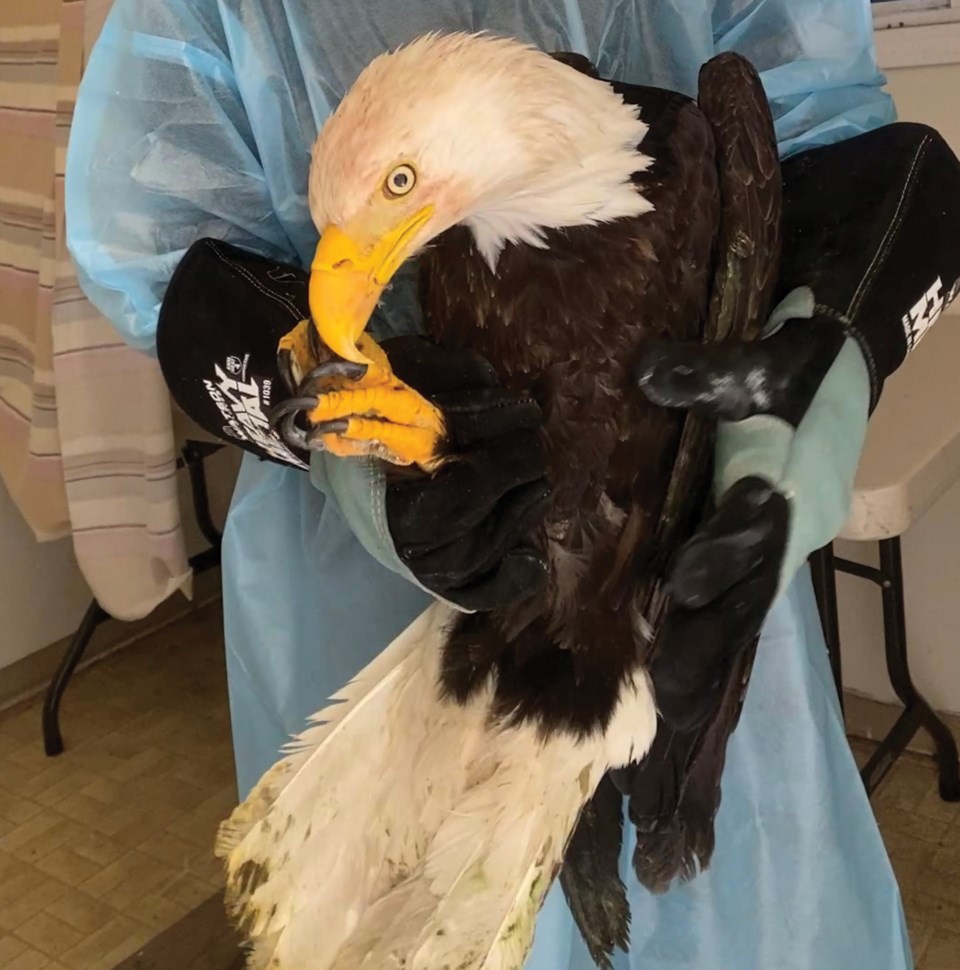Orphaned Wildlife Rehabilitation Society (OWL) receives close to 1,000 sick or injured birds of prey each year. Through the years OWL has returned more than 27,000 raptors to the wild.
OWL’s goal is to rescue, rehabilitate, and release native wild raptors, as well as educate the public on how to prevent injuries to wildlife.
As you may have heard, the Highly Pathogenic Avian Influenza (HPAI, or bird flu H5N1) is making the rounds again globally.
In February we had a positive case in a Bald Eagle and immediately implemented new biosecurity measures. Unfortunately, since that first case, six more birds have arrived with the virus - five Bald Eagles and one Coopers Hawk - and we are awaiting results on four more Bald Eagles and a Peregrine Falcon. Two of the confirmed cases were from Delta. Sadly, in raptors, H5N1 has a 90 to 100 per cent mortality rate. Raptors pick up this disease from their food sources. Waterfowl are natural reservoirs for varieties of Avian Influenza yet are largely unaffected themselves and rarely show signs of the disease.
The OWL team of volunteers worked tirelessly to add and improve quarantine areas so each patient can safely quarantine during testing and treatment. As you can imagine, we are using a lot of personal protective equipment (PPE) and rely on donations to help with this unexpected cost, and allow us to remain open and accept patients who need us. Sadly, numerous comparable North America facilities have had to temporarily close due to the impact of the virus.
To help stop the spread of HPAI, please keep your chickens or pet birds out of yards where wild birds may congregate. Consider removing your bird feeders and baths for the time being, and plant bird friendly native plants for birds to forage on.
If you find an injured raptor, please call us at 604-946-3171. Report dead wild birds to the Bird Mortality Hotline at 1-866-431-BIRD (2473).



